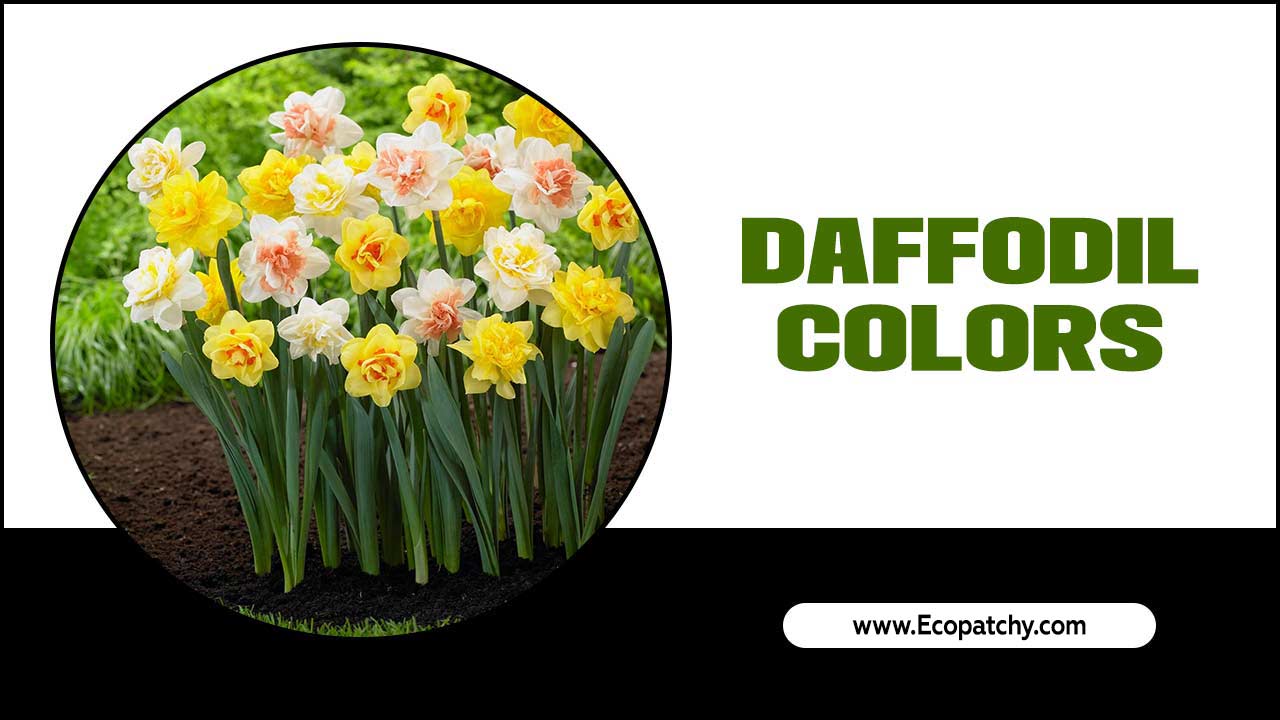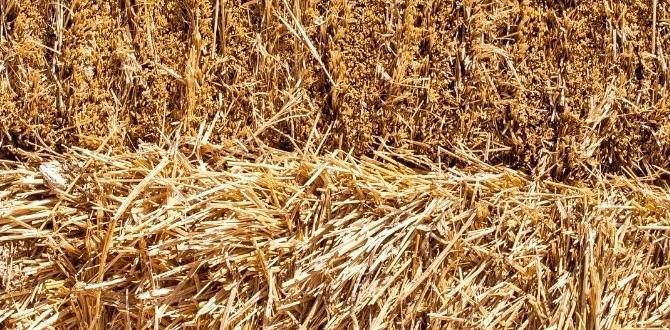Have you ever wondered if mushroom compost is good for gardens? Many gardeners are curious about this compost. It comes from the leftover materials after mushrooms are harvested. This might sound strange, but it can help your plants grow strong and healthy.
Imagine a garden bursting with colorful flowers and tasty vegetables. Wouldn’t it be great to know how to make your plants thrive? Mushroom compost can be part of that magic. Research shows it has many nutrients that plants love. And here’s a fun fact: mushrooms are grown in a special medium that can add many benefits to your garden soil.
You may have seen mushroom compost at your local garden store. But is it right for your garden? Let’s explore how this unique compost can change your gardening game.
Is Mushroom Compost Good For Gardens: Benefits And Tips
Is Mushroom Compost Good for Gardens?
Mushroom compost offers many benefits for your garden. This nutrient-rich material improves soil structure and encourages healthy plant growth. With a balanced mix of materials, it helps retain moisture, reducing the need for frequent watering. Plus, it’s great for enriching vegetables and flowers alike! Did you know some gardeners swear by it? Using mushroom compost not only boosts your plants but also creates a more sustainable garden environment. Why not give it a try?Understanding Mushroom Compost
Definition and composition of mushroom compost. How mushroom compost is produced and processed.
Mushroom compost is a special mix made from mushroom farming waste. This compost includes straw, manure, and other organic materials that break down over time. To create it, growers first grow mushrooms on the materials. After harvesting, the leftover mix becomes compost. It is then pasteurized to kill harmful germs. This process results in rich, dark compost that nourishes plants. Using this compost can help improve soil quality in gardens.
What is mushroom compost made of?
- Spoiled straw
- Chicken manure
- Gypsum
- Other organic matter
How is mushroom compost produced?
First, mushrooms grow in a mix of waste materials. After the mushrooms are picked, the leftover mix is processed into compost. This compost is then heated to kill germs, making it safe for plants.
Benefits of Using Mushroom Compost in Gardens
Nutritional value for plants. Improves soil structure and drainage.
Mushroom compost is like a magic potion for your garden! It adds amazing nutritional value to your plants. Full of nutrients, it helps them grow strong and healthy. Plus, this compost works hard to improve soil structure and drainage. Think of it as a cozy bed for plants. They love it when the soil is soft and lets water flow. So, if you’re planting something new, don’t forget the mushroom magic!
| Nutritional Benefits | Soil Improvement |
|---|---|
| Rich in nutrients | Enhances soil structure |
| Provides organic matter | Improves drainage |
| Encourages healthy growth | Retains moisture |
Mushroom Compost vs. Other Types of Compost
Comparison with traditional compost types. Advantages and disadvantages of using mushroom compost.Comparing mushroom compost to traditional compost types is like choosing between a cozy sweater and a stylish jacket. Both keep you warm, but they offer different perks. Mushroom compost comes packed with nutrients, making plants jump for joy. It helps retain moisture, which means less time watering—definitely a plus for busy gardeners! However, it can be a bit salty for some plants, so watch out! You don’t want your ferns wondering why they’re craving a drink.
| Type of Compost | Advantages | Disadvantages |
|---|---|---|
| Mushroom Compost | Nutrient-rich, moisture-retaining | Can be salty for some plants |
| Traditional Compost | Well-balanced, environmentally friendly | May take longer to break down |
How to Use Mushroom Compost in Your Garden
Application methods and best practices. Recommended quantities and mixtures with other soils.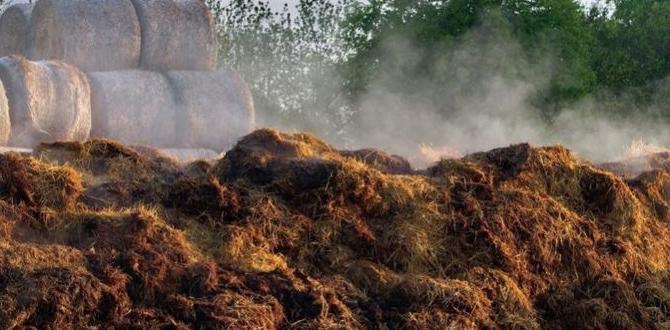
Mushroom compost can be a game-changer for your garden. It’s rich in nutrients and easy to use! Start by applying a 2-3 inch layer over your soil. Mix it well to avoid any mushroom-party crashers in your flowerbeds. The best blend is a 50-50 mix with regular soil. This combination is like peanut butter and jelly for your plants. Try adding it during planting or topping off your garden each season for happy, healthy veggies.
| Application Method | Recommended Quantity |
|---|---|
| Top dressing | 2-3 inches layer |
| Mixing with soil | 50% mushroom compost, 50% soil |
So, let’s make your garden great—watch out for those mushroom guests, though!
Plants That Thrive in Mushroom Compost
Types of plants and crops that benefit most. Success stories and testimonials from gardeners.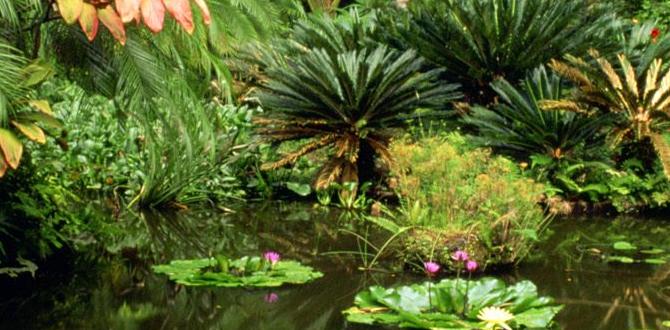
Mushroom compost is a wonderful way to help your plants grow strong. It is rich in nutrients and can benefit many types of plants, like:
- Tomatoes
- Peppers
- Leafy greens
- Herbs
Many gardeners have seen amazing results. For instance, one gardener stated, “My tomatoes grew bigger and tastier!” This shows how mushroom compost works wonders in the garden. It really helps plants thrive and produce healthy crops.
What crops grow well with mushroom compost?
Gardening experts recommend using mushroom compost for vegetables and flowers, especially root veggies like carrots and radishes. They love the nutrients from the compost!
Potential Drawbacks of Mushroom Compost
Possible limitations and considerations. How to mitigate any negative effects.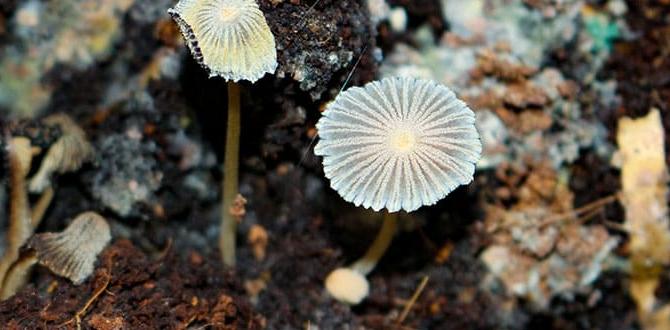
Mushroom compost sounds great, but it has some quirks. First, it can be too acidic for certain plants. Some gardeners find it can pack too much nitrogen, which might lead to a wild party of leaves but few flowers. Thankfully, mixing it with other compost helps balance things out. Keep an eye on your plants, and if they start acting strange, don’t panic! Just adjust the soil mix to keep everyone happy.
| Potential Issues | Solutions |
|---|---|
| Too acidic | Mix with lime or neutral compost |
| High nitrogen levels | Combine with carbon-rich materials |
So, while mushroom compost can be like that fun friend who eats too much cake at a party, you can balance things to make the garden a delightful place again!
DIY Mushroom Compost for Gardeners
Simple methods to create your own mushroom compost. Tips for sourcing materials and maintaining quality.Making your own mushroom compost is easier than you think! First, gather materials like straw, leaves, and kitchen scraps. Mix them up in a pile. As they break down, you’ll have a rich compost. Keep it moist but not too soggy, or it’ll turn into a swamp—a compost swamp does not sound fun! Check regularly to make sure it smells earthy and fresh.
| Material | Source |
|---|---|
| Straw | Local farms or garden centers |
| Leaves | Your yard or nearby parks |
| Kitchen scraps | Your kitchen (veggie peels work great!) |
Remember, patience is key—good things come to those who wait! Keep your compost well-aerated, and soon you’ll have amazing mushroom compost. Your garden will thank you, and so will your mushrooms—they love it!
Real-Life Case Studies and Experiments
Examples of garden projects using mushroom compost. Results and findings from gardening experiments.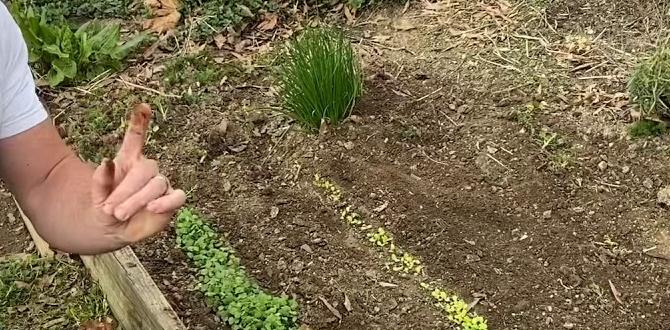
Many garden projects show the benefits of using mushroom compost. In one study, a community garden added mushroom compost to their soil. They reported healthier plants and bigger vegetables. Another experiment tested mushroom compost in flower beds. The flowers bloomed brighter and were more vibrant. Here are some examples:
- Tomato plants grew faster and produced more fruit.
- Flowering plants had richer colors and stronger scents.
- Vegetable crops showed improved disease resistance.
Overall, these results show that mushroom compost is helpful for growing plants.
How does mushroom compost help gardens?
Mushroom compost adds nutrients. It also improves soil structure, making it easier for roots to grow. Plants can take up water and nutrients better with this compost. This leads to strong, healthy plants.
Frequently Asked Questions about Mushroom Compost
Common queries and concerns addressed. Expert insights and recommendations.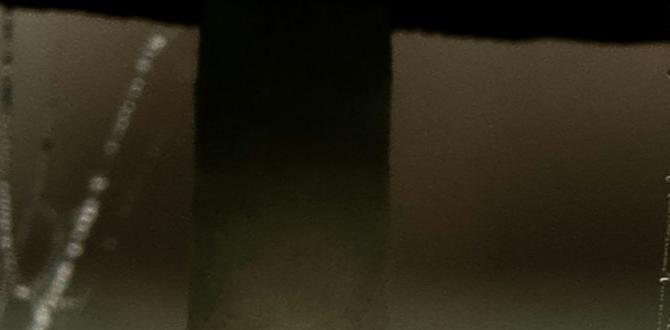
Many folks wonder about mushroom compost and its benefits for gardens. Some common questions pop up often. One concern is, “Will mushroom compost burn my plants?” The answer is no! It’s gentle and nourishes your soil. Another query is, “How does it help my veggies?” Well, it’s packed with nutrients and improves soil texture—a gardening superhero!
| Question | Answer |
|---|---|
| Can I use it on all plants? | Yes! Most plants love it. |
| How often should I apply it? | Once a year is usually enough. |
Experts recommend mixing it with regular soil. This can make your plants more vibrant! So go ahead, grab some mushroom compost, and give your garden a tasty treat!
Conclusion
In conclusion, mushroom compost is great for gardens. It adds nutrients and improves soil quality. You can use it for vegetables, flowers, and shrubs. Just remember to mix it well with your garden soil. If you want to learn more, check out gardening books or websites. Start using mushroom compost today and watch your garden thrive!FAQs
Here Are Five Related Questions On The Topic Of Mushroom Compost And Its Effects In Gardens:Mushroom compost is a mix of used materials from growing mushrooms. It helps plants grow by adding nutrients to the soil. When you use mushroom compost, it can make your garden richer and healthier. It also helps the soil hold water better. You can mix it into your garden bed to give your plants a good boost!
Sure! Just send me the question you’d like me to answer, and I’ll help you out!
What Are The Benefits Of Using Mushroom Compost In Vegetable Gardens?Using mushroom compost in vegetable gardens is great for plants. It helps them grow strong by giving them extra nutrients. You can also save water because it holds moisture really well. Plus, it keeps weeds away, making it easier to care for your garden. Overall, mushroom compost makes your garden healthier and more productive!
How Does Mushroom Compost Compare To Traditional Compost In Terms Of Nutrient Content?Mushroom compost usually has more nutrients than traditional compost. It’s made from stuff like straw and manure that helps plants grow. You get extra benefits, like better water retention. This means your plants can drink more easily. Overall, mushroom compost can be a great choice for healthy plants!
Are There Any Plants That Should Not Be Grown In Mushroom Compost?Yes, some plants shouldn’t be grown in mushroom compost. For example, you should avoid planting things like tomatoes and peppers. Mushroom compost can be too rich in nutrients for them. It’s better to use regular soil for those plants. Always check what plants like best before planting!
How Can Mushroom Compost Be Properly Mixed Into Garden Soil For Optimal Results?To mix mushroom compost into your garden soil, start by breaking up the soil with a shovel. Then, add a layer of mushroom compost on top. Use a rake to mix it in well, so it combines with the soil. Water the area lightly after mixing. This helps the plants get nutrients for healthy growth!
What Are The Best Practices For Storing And Applying Mushroom Compost In Home Gardens?To store mushroom compost, keep it in a dry, cool place. Use a covered bin or a tarp to protect it from rain. When you’re ready to use it, spread a layer about 1 inch thick onto your garden soil. Mix it into the dirt with a shovel to help your plants grow. Remember to apply it in the spring or fall for the best results!
{“@context”:”https://schema.org”,”@type”: “FAQPage”,”mainEntity”:[{“@type”: “Question”,”name”: “Here Are Five Related Questions On The Topic Of Mushroom Compost And Its Effects In Gardens:”,”acceptedAnswer”: {“@type”: “Answer”,”text”: “Mushroom compost is a mix of used materials from growing mushrooms. It helps plants grow by adding nutrients to the soil. When you use mushroom compost, it can make your garden richer and healthier. It also helps the soil hold water better. You can mix it into your garden bed to give your plants a good boost!”}},{“@type”: “Question”,”name”: “”,”acceptedAnswer”: {“@type”: “Answer”,”text”: “Sure! Just send me the question you’d like me to answer, and I’ll help you out!”}},{“@type”: “Question”,”name”: “What Are The Benefits Of Using Mushroom Compost In Vegetable Gardens?”,”acceptedAnswer”: {“@type”: “Answer”,”text”: “Using mushroom compost in vegetable gardens is great for plants. It helps them grow strong by giving them extra nutrients. You can also save water because it holds moisture really well. Plus, it keeps weeds away, making it easier to care for your garden. Overall, mushroom compost makes your garden healthier and more productive!”}},{“@type”: “Question”,”name”: “How Does Mushroom Compost Compare To Traditional Compost In Terms Of Nutrient Content?”,”acceptedAnswer”: {“@type”: “Answer”,”text”: “Mushroom compost usually has more nutrients than traditional compost. It’s made from stuff like straw and manure that helps plants grow. You get extra benefits, like better water retention. This means your plants can drink more easily. Overall, mushroom compost can be a great choice for healthy plants!”}},{“@type”: “Question”,”name”: “Are There Any Plants That Should Not Be Grown In Mushroom Compost?”,”acceptedAnswer”: {“@type”: “Answer”,”text”: “Yes, some plants shouldn’t be grown in mushroom compost. For example, you should avoid planting things like tomatoes and peppers. Mushroom compost can be too rich in nutrients for them. It’s better to use regular soil for those plants. Always check what plants like best before planting!”}},{“@type”: “Question”,”name”: “How Can Mushroom Compost Be Properly Mixed Into Garden Soil For Optimal Results?”,”acceptedAnswer”: {“@type”: “Answer”,”text”: “To mix mushroom compost into your garden soil, start by breaking up the soil with a shovel. Then, add a layer of mushroom compost on top. Use a rake to mix it in well, so it combines with the soil. Water the area lightly after mixing. This helps the plants get nutrients for healthy growth!”}},{“@type”: “Question”,”name”: “What Are The Best Practices For Storing And Applying Mushroom Compost In Home Gardens?”,”acceptedAnswer”: {“@type”: “Answer”,”text”: “To store mushroom compost, keep it in a dry, cool place. Use a covered bin or a tarp to protect it from rain. When you’re ready to use it, spread a layer about 1 inch thick onto your garden soil. Mix it into the dirt with a shovel to help your plants grow. Remember to apply it in the spring or fall for the best results!”}}]}
